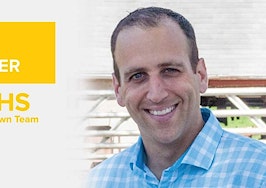Differentiation — at its core — means to constitute a difference between or specialize in structure or functions to acquire a distinctive and separate character. That sounds intriguing, right?
Let’s look at the reasons why an agent would want to differentiate himself and his business model. The three most common revenue streams for any business are:
1. Repeat business
2. Client referrals
3. New business
If you have differentiated your business in a way that is tangible to your clients to the point they see the benefit of working with you, they will continue to do so.
If not, you run the risk of having one-and-done clients who will not refer you. However, if your past clients can articulate your benefit, they will refer you with gusto.
How are you going to attract new business if your clients perceive you as an average agent? The answer is you won’t. Given the multitude of choices that consumers have, without structured differentiation, your business model can only be built on popularity.
We have all seen agents climb the popularity ladder only to fade five years later like a Roman candle, which is what I call the “sizzle but no steak” business model. In other words, there is no substance their clients can benefit from or attach themselves to, making client attrition a real problem.
So, how do agents differentiate themselves from their competition? The simplest way to describe this process is to look at your business like a vehicle.
[Tweet “How to differentiate from competition? Look at business like a vehicle.”]
If you have a motor that can generate 500 horsepower but do not have the right chassis, then your vehicle will have more than enough power but no direction. In other words, if you can work from sunup to sundown but don’t have an internal framework, you can’t control your ability to maintain a client base or create results.
Great vehicles have chassis that channel and direct the power the motor is able to provide in such a way that is constantly enhancing the driving experience. If your clients were to describe your business model, would they say it enhanced their selling experience with regards to the counsel, marketing and results you provided?
In an agent’s business model, the chassis is made up of the systems and strategies that steer the home-selling process. If your business model includes 20- to 40-year-old sales best practices, then you are riding on an old, outdated chassis, and the likelihood that you are differentiated is slim to none.
Differentiation typically begins with a unique selling proposition, or USP. The USP needs to offer something of obvious value for the consumer that will grab their attention inspiring a call to action.
If it does not, then it’s not a USP, and it’s likely just a hey-look-at-me slogan with more of the same outdated chassis, all-sizzle business models that have proliferated in the real estate sales industry.
The statement below by a knowledgeable and reputable source best describes the framework your chassis will need to support your USP and what differentiation is.
Warren Buffet would say there are three rules agents must obey if they want to build a business they could sell for a tidy sum. He said, “Businesses need a durable competitive advantage, a long-term sustainable advantage, which is strategic in nature and is backed with a perfectly aligned organization to consistently deliver the promised value proposition.”
Build a chassis with this kind of framework and you will have created the holy grail of the real estate industry that is “differentiated top of mind awareness.”
The why, how and what of a differentiated business model are great questions for all agents to ponder as they might steer you toward creating your unique form of differentiation.
In the end, if you’re not different, then you are the same. Being differentiated requires a keen desire to be and offer something different.
I encourage you to be pragmatic in developing your differentiated model and be committed to the process because you will need to embody your business model to deliver its value proposition.
Eric Putoto is the creator and founder of The Platinum Process Real Estate Coaching Program. You can follow him on Twitter @epplatinum or LinkedIn.
Inman Connect San Francisco is right around the corner — register now and save $200!



